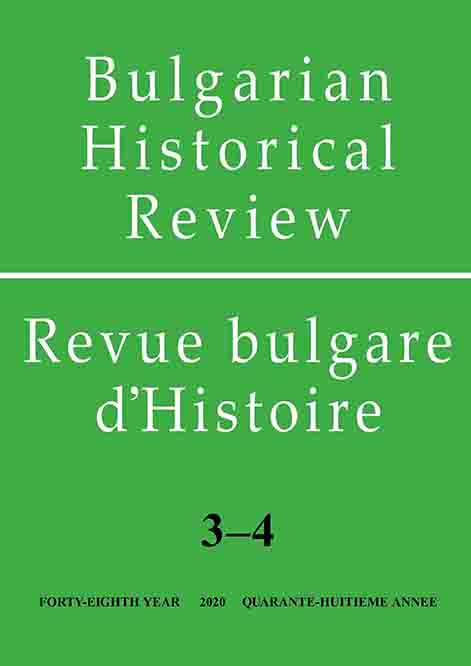Bulgarian-Russian (Soviet) Relations between Demythologization and Remythologization at the End of the 20th and the Beginning of the 21st Century
Bulgarian-Russian (Soviet) Relations between Demythologization and Remythologization at the End of the 20th and the Beginning of the 21st Century
Author(s): Iliyana MarchevaSubject(s): History, Cultural history, Diplomatic history, Economic history, Political history, Social history, Recent History (1900 till today), Special Historiographies:, Pre-WW I & WW I (1900 -1919), Interwar Period (1920 - 1939), WW II and following years (1940 - 1949), Post-War period (1950 - 1989), Transformation Period (1990 - 2010), Present Times (2010 - today), Cold-War History
Published by: Институт за исторически изследвания - Българска академия на науките
Keywords: Bulgarian-Russian / Bulgarian-Soviet relations; myths; politics of history;
Summary/Abstract: The study examines the demythologization and remythologization of the Bulgarian-Russian and Bulgarian-Soviet relations in 1989–2019 in the context of the politics of history pursued in Bulgaria. It reveals the role of myths in politics of history for creating identities by maintaining certain interpretations in view of the new geopolitical orientation of the country after the end of the Cold War. The author analyzes the accumulated Bulgarian historical literature, which includes not only academic but also journalistic and parahistorical works. She points out the public reactions, fuelled by certain interpretations of some key moments of the Bulgarian-Russian and Bulgarian-Soviet relations. These are the character of the Russo- Turkish War of 1877/78, the role of Count Ignatiev and the character of the national holiday March 3, the Bulgarian-Soviet political and economic relations, and in particular – the Stalinist repressions, the occupation regime 1944–1947, the Soviet decisions of the debt crises of the 1960s and 1970s. It is concluded that after 1989 the demythologization of the Bulgarian-Soviet and Bulgarian-Russian relations took place as a moment in the development of the Bulgarian historical science. And to a large extent, the one-sidedness that turns this demythologization into a new remythologization is due to the use of new historical interpretations as an element of memory policy to overcome the communist past and “Sovietophilia”, as well as the politics of history to overcome “Russophilia”.
Journal: Bulgarian Historical Review / Revue Bulgare d'Histoire
- Issue Year: 2020
- Issue No: 3-4
- Page Range: 72-104
- Page Count: 33
- Language: English
- Content File-PDF

